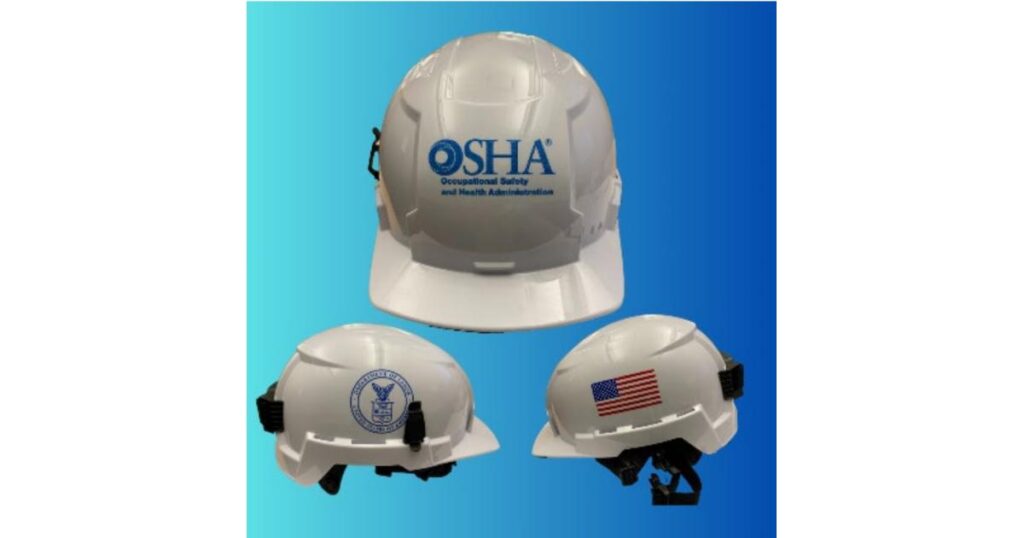Example of a safety helmet
The U.S. Department of Labor’s Occupational Safety and Health Administration announced that the agency is replacing traditional hard hats used by its employees with more modern safety helmets to protect them better when they are on inspection sites.
In 2020, the Bureau of Labor Statistics reported head injuries accounted for nearly 6 percent of non-fatal occupational injuries involving days away from work. Almost half of those injuries occurred when workers came in contact with an object or equipment while about 20 percent were caused by slips, trips and falls.
Dating back to the 1960s, traditional hard hats protect the top of a worker’s head but have minimal side impact protection and also lack chin straps. Without the straps, tradition hard hats can fall off a worker’s head if they slip or trip, leaving them unprotected. In addition, traditional hard hats lacked vents and trapped heat inside.
On Nov. 22, 2023, OSHA published a Safety and Health Information Bulletin detailing key differences between traditional hard hats and more modern safety helmets and the advancements in design, materials and other features that help protect workers’ entire heads better. Today’s safety helmets also may offer face shields or goggles to protect against projectiles, dust and chemical splashes. Others offer built-in hearing protection and/or communication systems to enable clear communication in noisy environments.
The agency recommends safety helmets be used by people working at construction industry and the oil and gas industry; in high-temperature, specialized work and low-risk environments; performing tasks involving electrical work and working from heights; and when required by regulations or industry standards.
OSHA wants employers to make safety and health a core value in their workplaces and is committed to doing the same by leading by example and embracing the evolution of head protection.
Read the full article here

